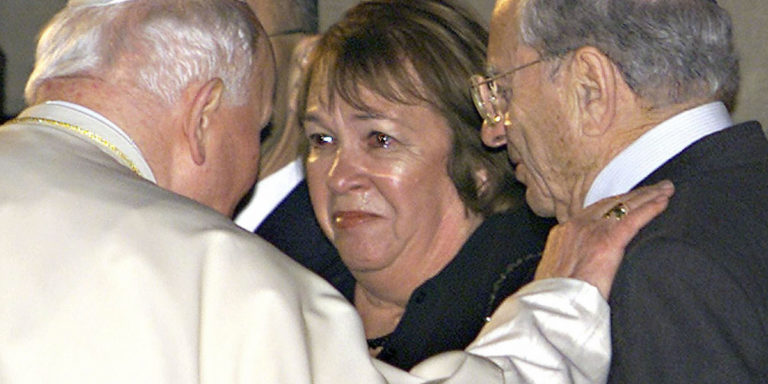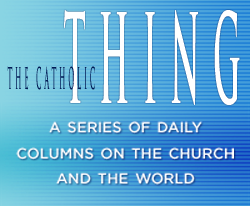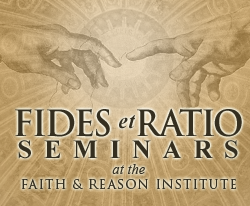Righteous Gentile
In 1943, there was an uprising against the Nazi occupiers in the Jewish ghetto in Częstochowa, Poland, which the SS quickly crushed, killing many Jews. Many more were sent to death camps. Those who remained in Częstochowa worked on as slave laborers, until the Red Army liberated the city, by which time it was, as the Nazis would have proudly proclaimed, almost completely Judenfrei.
As history has shown since Poland emerged from its post-war communist past, that “liberation” was double-edged. Poland truly was, as Fulton Sheen put it, a nation “crucified between two thieves.”
Just 13-years-old on January 28, 1945, an exhausted and malnourished Jewish girl, Edith Zierer, found her way to a depot along one of the train lines that ran through Częstochowa. Believing her family was alive in Kraków, she climbed into a coal car that was part of a train she hoped would take her there. But the cold wind that blew through the open car was too much to bear, and about two hours later, in fear of being frozen to death, she climbed out of the car when the train stopped. She limped onto the platform at the station in Jedrzejow – a providential decision, not least because the train she abandoned had been heading east. Kraków was south.
She sat inside the station alone. If passersby noticed her, they ignored her, though it was clear she was a refugee. She was dressed in the numbered uniform, now ragged, that the always-efficient Nazis made slave laborers wear. Anyone with eyes to see could tell how weak and hungry she must be. But no one came to her aid.
Click here to read the rest of Mr. Miner’s column at The Catholic Thing . . .



